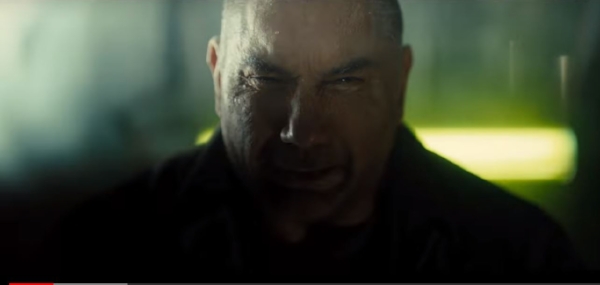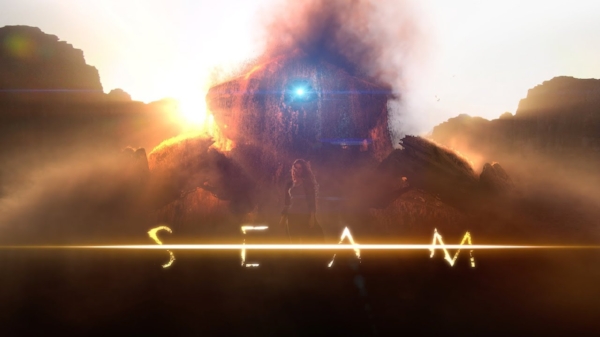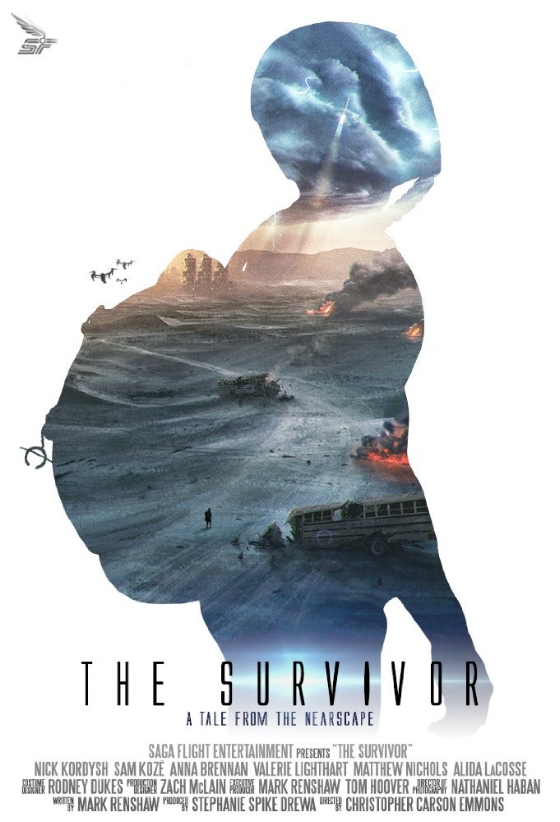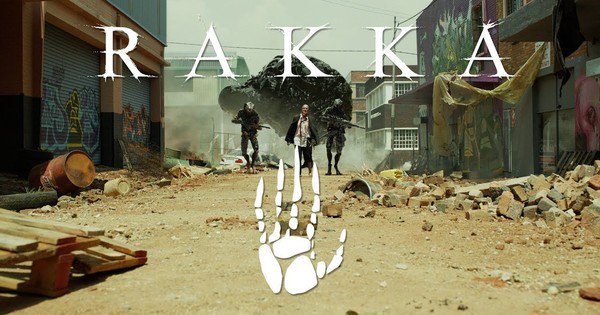Keloid is the hit supernatural web series centering an African-American mother and son who possess fantastic powers that set them apart from ordinary humans.
The 7th Matrix reviewed this extraordinary web series, and was granted an interview with the talented creator and director of the project, Huriyyah Muhammad.
Muhammad graciously shared with us what inspired her to enter into a career in filmmaking. She also provided fascinating insights regarding the genesis and future of Keloid.
T7M: Are you a fan of science fiction and fantasy, and if so, who or what inspired your love of the genre?
HM: I'm a lover of great stories - stories that take the viewer to new worlds and new experiences. Growing up one of my absolute favorite books was a supernatural story about a monster that would come to towns and eat both animals and the villagers. There was only one boy in the town who could control the monster. It kinda reminds me of the storyline in GOT (Game Of Thrones) - with Daenerys and her dragons. I read that book over and over again; and of course I grew up watching Star Trek; who didn't want to be on the starship enterprise?
T7M: As a follow up question, what inspired you to become a filmmaker?
HM: My love for writing led me to filmmaking. I always loved to write and imagined that I would become a great American writer, but I was never disciplined enough to write a novel. I would get about a hundred pages in and lose interest in the story. There is a iconic writer and producer named Mara Brock Akil, bless her soul because she created the show Girlfriends. One day I was watching Girlfriends and it dawned on me that someone was writing the shows. I literally said out loud, “I can write this!” I started writing screenplays and they were really good. That summer I quit my job, packed up my truck and drove myself west to Hollywood.
T7M: For our readers who may be unaware, how would you describe the premise of Keloid?
HM: Keloid is what I like to call a supernatural drama. Keloid is a young boy, who desperately just wants to fit in. But he doesn’t because there is really nothing typical about him. He has the abilities of telepathy, teleportation, telekinesis and control of electricity at his disposal. He is a descendant in a long line of gifted human beings. To make matters worse, we enter the story as Keloid’s world is crashing in around him. Someone linked to him has just gone missing from his school. Stunned, he and his mother do what they do best, what they have done Keloid’s whole life, run. Run from questions, run from their past, run from being found. This is his story.
T7M: How did the concept for the series develop?
HM: That’s a great question. We created Keloid for the Black TV & Film Collective. We are a non-profit organization here in NYC with 1200 members. We’re writers directors, editors, cinematographers, actors and more. Our mission is simply to increase opportunities for artists of color working in television, film and digital.
Keloid was created because we wanted to increase awareness for the Black TV & Film Collective. In 2016, we began talking about the idea of launching a network dedicated to showcasing the work of our members. We definitely wanted drama, some comedy, a thriller or two, but we also knew we wanted to represent for all the sci-fi and supernatural fans of color out there. At the time we didn’t have any scripts that we were ready to produce. So I sat down and wrote Keloid.
I started with a nugget of an idea. What would the relationship with my mother and my brother be like if the family had super powers? I remembered how my brother was as a teenager. He wanted to go out in the world and explore. My mother wanted to keep him home safe. They butted heads constantly because of it. Over 20 BTFC members came together to make the show happen, some even using vacation time from work so they could be a part of the shoot. Many members also worked in post production.
The scripts and the story itself developed pretty fast as well. Once I shared the initial scripts with members, we workshopped it and they got better and better.
T7M: Keloid centers an African-American family. While we are still fighting for more representation in media as a whole, why do you think we are so rarely centered in science fiction and fantasy narratives on screen?
HM: To be honest, I think simply because the gatekeepers - those who write the checks, who green light the films and the movies - have simply not been able to imagine black and brown faces in these roles. It's easy for them to imagine us as the ex-con, the preacher, slave, prisoner, gangsters, baby mama, hoe and a whole lot of others, but usually not the inter-galactic space general saving the universe. They see themselves that way, but not others. When was the last time we saw an Asian man saving the world? The time for our stories is now.
Luckily we have the power to write and to produce and to get our stories out in front of an audience. I'm so thankful to [The] 7th Matrix for supporting us in this cause. We don't have a traditional marketing budget, but we do have each other.
T7M: The relationship between young Keloid (David Nixon) and his mother Marielle (Ada Woodruff) feels real in all its complexity and nuance. How difficult was the casting process?
HM: It was actually not difficult casting Marielle. I had worked with her before in the Independent Film School’s Directing lab. I saw what she could do then. Aba has a very serious tone about her that I felt would translate well for Marielle. Also she herself has two boys, so it's a life she knows through experience. When I was writing Marielle’s dialogue, I had Aba’s voice in my head.
Finding Keloid was actually a lot harder, but we actually just lucked up. We went through dozens and dozens of young men who came in and many of them had theater experience but little experience in front of the camera. Theater is very different for obvious reasons. We had actors come in, who in the middle of their lines would walk off and look out above our heads as if they were looking out into the theater audience. It was weird to say the least. Lol. When David came in he looked like a kid, talked like a kid, had that same kid nervous energy and he was just himself. He was perfect. We had to schedule around his college courses, but we were happy to do so.
T7M: Keloid addresses the sense of alienation and being “othered” African-Americans grapple with. What is the biggest takeaway you want viewers to get?
HM: Honestly this is a conversation that Aba and David and I have also had. When I was writing the story, I didn't really write with the theme of being “other” or the idea that at the end of the day, this is a black mother and that is her black son, in mind. I simply wrote from experience.
I wrote what I knew. I knew the fear my mother had every time one of us stepped out of the house. Growing up, I didn’t analyze why and neither did I with the writing. I just let the story come. I knew the fight my mother had with my brothers who were less inclined to obey her rules the older they got. I saw how she did everything she could for us. Gave us everything she had - she did a lot of that through discipline. There is a line where Marielle tells Keloid, “I know you’re still mad at me, but one day, you’ll thank me.” I was mad at her a lot, and afraid of her - my mother didn’t play. Today, I just thank her.
Both of my parents passed away some time ago, but I pray that the work I am doing with the Black TV & Film Collective and my work as an artist always makes them proud.
T7M: Why did you decide to produce Keloid as a web series? Are you open to it being adapted into other media?
HM: We produced Keloid as a web-series because through web-series, producers have the ability to tell great stories with smaller budgets. We spent $10K on the first season. I financed it out of my own pocket. We are preparing to shoot Keloid Season 2 but first raising money through the Keloid: Season 2 Crowdfunding Campaign. I hope that audiences who loved season one will contribute. There is a lot left of the story to tell and we hope that viewers will support the cause.
T7M: Not only are you the producer, writer, and director of Keloid (whew!), you are also the founder of the Black TV & Film Collective. Would you please tell us more about the collective and its aims?




























